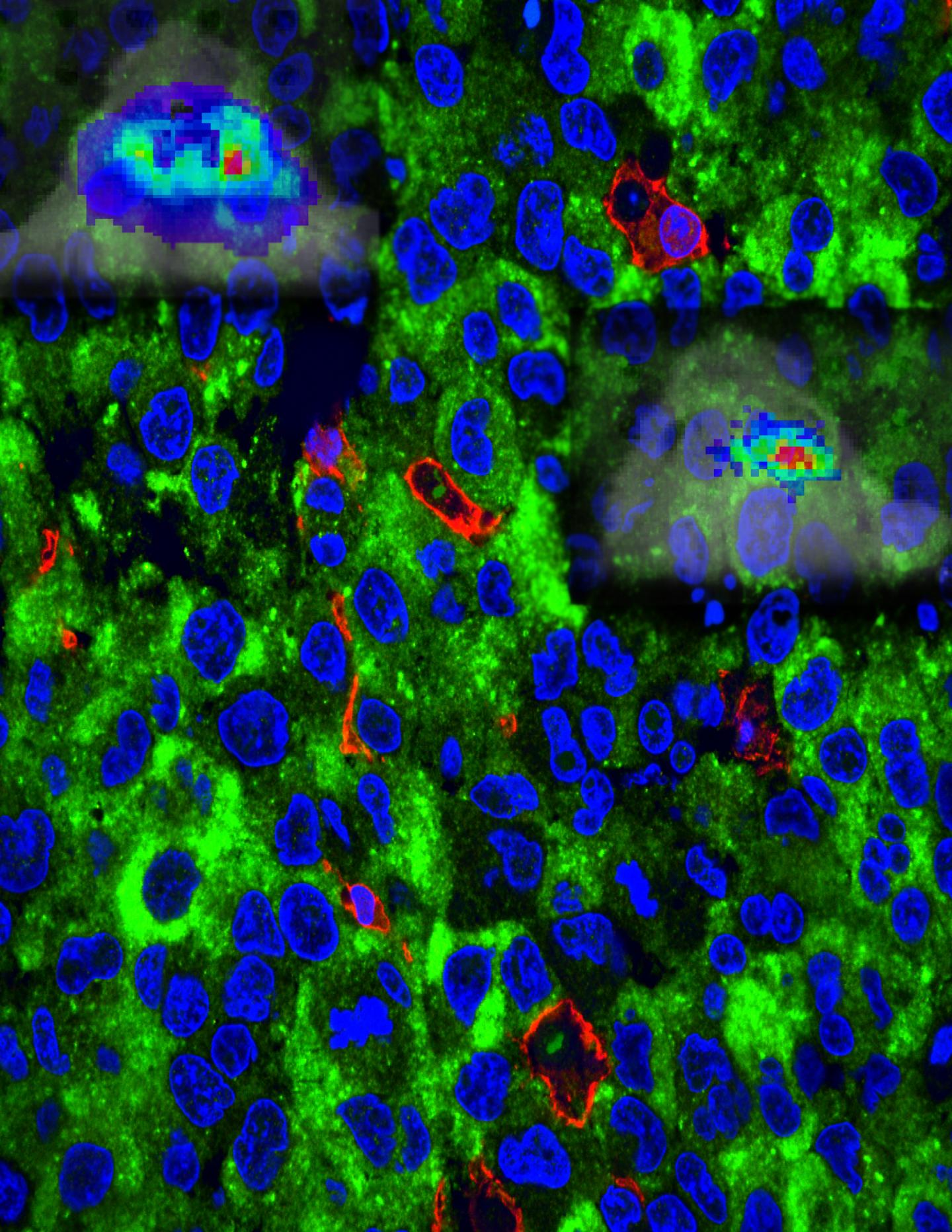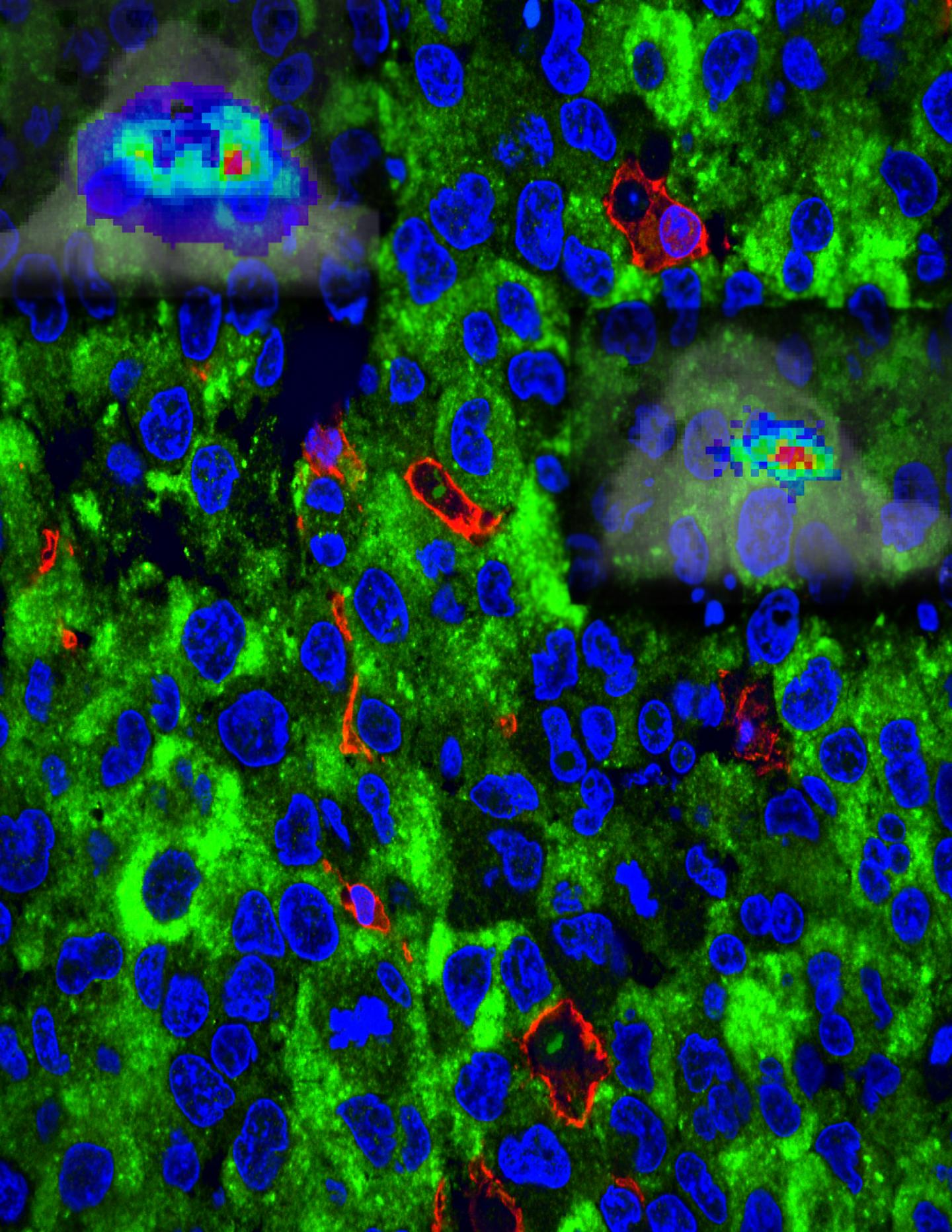
Credit: Cincinnati Children's
CINCINNATI – Scientists report finding a potentially promising treatment target for aggressive and deadly high-grade brain cancers like glioblastoma. But they also say the current lack of a drug that hits the molecular target keeps it from being advanced for testing as a therapeutic strategy for patients with few treatment options.
Publishing their data online June 18 in Nature Cell Biology, researchers at the Cincinnati Children's Cancer and Blood Diseases Institute point to a protein that helps regulate cell metabolism called AMPK (AMP-activated protein kinase). Their data suggest AMPK is a key driver of the mostly untreatable brain cancers, and blocking it may produce therapeutic benefit for very ill patients.
But the finding also challenges the scientific status quo regarding AMPK. This is because current research literature characterizes it as a cancer suppressor, according to the study's senior investigators, Biplab Dasgupta, PhD, and first author Rishi Raj Chhipa, PhD–both scientists in the Division of Oncology at Cincinnati Children's.
"AMPK is considered to play a suppressive role in cancer because it inhibits cancer-promoting enzymes like mammalian target of rapamycin (mTOR) and acetyl Co-A carboxylase (ACC)," Dasgupta said. "Our study uses analysis of The Cancer Genome Atlas to show that AMPK proteins are highly expressed in lethal human glioblastoma, that inhibiting AMPK by genetic means shrinks brain tumors and prolongs survival in mice. It also shows that deleting AMPK from the whole body of adult mice is safe for the animals."
The Cancer Genome Atlas is a collaboration between the National Cancer Institute (NCI) and the National Human Genome Research Institute that has generated comprehensive, multi-dimensional maps of the key genomic changes in 33 types of cancer. According to the NCI, the database is publicly available, making it helpful to the cancer research community to improve the prevention, diagnosis, and treatment of cancer.
Although data in the current study support the feasibility of using pharmacological inhibitors of AMPK to treat glioblastoma, years of additional research are needed before it will be known if the findings are clinically relevant. "We are hopeful our studies will encourage pharmaceutical companies to screen for AMPK inhibitors," Dasgupta said.
Investigators are planning the next research phases that will be needed to translate the findings to patient care. Dasgupta explained that fostering research collaborations with companies or other institutions with expertise in developing pharmaceutical compounds would help advance the potential therapeutic strategy.
Molecular Hijacking
Cancer cells–high-grade brain cancer cells in particular–manage to survive in a highly stressful tumor environment. But the tumor cells maintain their ability to aggressively expand. Although medical science has been able to leverage this stress in part to find effective treatments for a large number of cancers, high-grade brain cancers like glioblastoma remain especially stubborn survivors, defying every treatment strategy thrown at them.
But the current study's authors found that cancer-associated stress chronically activates AMPK, which normally works as a bioenergetic sensor that helps regulate cell metabolism and stress. They also learned that brain tumor cells hijack a molecular stress- and metabolism-management process regulated by AMPK to help cancer cells maintain their survival abilities.
After discovering this, Dasgupta and colleagues genetically deleted AMPK in human glioblastoma cells and transplanted them into mouse brains. Tumors grew, but very slowly and this prolonged the animals' survival. "It remains to be seen if inhibiting AMPK in combination with standard of care therapy prolongs survival even further."
Cancer Evolution
In the course of their research, Chhipa and Dasgupta observed something critical they said could change the way scientists interpret data from cell culture models. The observation also underscores how high-grade brain gliomas are able to evolve genetically to evade targeted molecular treatments, according to the scientists.
They noticed that while AMPK was necessary for the survival of patient-derived stem-like cancer cells recently derived from fresh cancer tissue, the protein was not required for the survival of traditional glioblastoma cell lines cultured for decades.
"Decades of culture could have altered genetic, epigenetic and metabolic characteristics of the lines, which adapted AMPK-independent survival pathways," said Dasgupta.
Because the large majority of cancer research still relies on cell culture models, Dasgupta said that the study's findings could become important for the research community, particularly when metabolic pathways of cancer cells are investigated.
###
Funding support for the study came from: a Center for Clinical and Translational Science and Training Translational Grant Award; a Pilot Innovation award from Cincinnati Children's; a University of Cincinnati Cancer Center Affinity Grant Award; CancerFreeKids; and the National Institutes of Health (1R01NS075291-01A and 1R01NS099161-01).
Media Contact
Nick Miller
[email protected]
513-803-6035
@CincyChildrens
http://www.cincinnatichildrens.org
Related Journal Article
http://dx.doi.org/10.1038/s41556-018-0126-z





